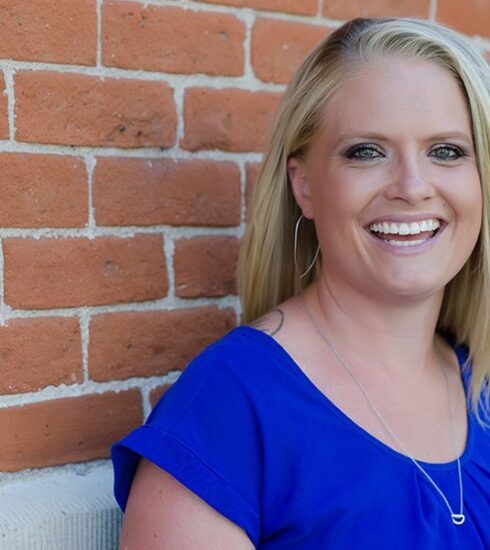Youth Coach Romy Solomon Fights Slavery With Hands-On Approach
By Melissa Jane Kronfeld & Megan Legband
Since she was just seven years old, Romy Solomon has been determined to change the world. Fast forward twenty years and Romy has already had a long career in making that dream come true. After college, Romy joined the Peace Corps in Moldova, where she connected with her family ancestry and served those in need. She then traveled to Romania on a Fulbright grant, where she researched human trafficking prevention in the region.
Now, Romy works as a Youth Leadership Coach with Leap4Change in both the United States and Europe, where she teaches the next generation how to employ hobbies, interests and passions to address human trafficking. For her efforts, she received a 2016 “Milli Award” from Westfair Communications.
Romy’s career serves an incredible model for millennials who aspire to effect real change in the world. Check out what happened when we caught up with Romy Solomon to talk about the fight to #EndSlaveryNow!
What is one fact that every person should know about slavery?
There are a lot of misconceptions about human trafficking and slavery today, and the important thing is that we expel stereotypes we may have of what victims and traffickers look and act like, so we are more open to recognizing the warning signs.
Oftentimes when people think about human trafficking, they think about mega block buster films where people are kidnapped and smuggled across borders. The reality is that a lot of the transportation of victims is actually done legally – on planes, buses, trains with legal documentation and visas, if traveling between countries.
Often the worst kind of violence that victims experience is not physical, but psychological and emotional. Don’t be fooled into thinking a victim will show physical signs of abuse – such as bruises or scars on his/her face. Traffickers mostly use emotional and psychological manipulation to control victims, which can leave much deeper scars.
Similarly, it is easy to fall into the trap of believing that traffickers will look like criminals or appear violent and threatening. Traffickers are excellent manipulators. They know how to study their victims carefully so they say all the right things or appear attractive to victims – which can mean dressing up in an expensive suit and tie or posing as a victim’s boyfriend. It is also common for women to be traffickers in order to gain more trust among female victims.
How did you first learn about modern slavery & what did you decide to do about it?
When I was a sophomore at the University of Maryland- College Park, a University club organized a screening of a documentary about child sex slaves in Asia. In the film, there was undercover footage of young girls and boys-as young as five and six years old- being sold in brothels to tourists.
It took me back to the summer I had spent in Thailand, where I first witnessed teenage girls working as prostitutes (and I had no idea that they could have been trafficked) and this had a lasting impact. I left the documentary in absolute tears, called my father right then and told him, “I know what I want to do with my life; I want to help stop slavery.”
What is the most critical obstacle preventing us from having a slave free world?
People are just not aware how they can get involved and make a difference in the fight against slavery. I think many people assume that anti-trafficking work is only for those that enjoy teaching or want to work directly with survivors, but that couldn’t be farther from the truth! It takes all types to make this world slave free.
There is a great need for business owners to hire trafficking survivors to prevent re-trafficking and to ensure their own financial independence. Lawyers are able to help survivors incarcerate their traffickers. Medical professionals can learn how to properly identify victims and better support their needs during health examinations. Hotel staff, airline stewardesses, and airport workers are just some of the people that may be witnesses while victims are transported and have an opportunity to say something.
It is important for all members of society to be educated about modern day slavery, to learn the warning signs, and to know how to report suspicious activity to the national hotline number (the one in the United States is 1-888-373-7888). Anti-trafficking organizations are always in need of expert marketing professionals to bring attention and funding to the cause. Information Technology [IT] professionals also can help create apps and cutting edge technology that more quickly track down victims and ‘Johns’.
There is so much opportunity for all types of people, professions, and interests to get involved and to join the movement. They just have to be willing to take that first step to search for them.
What is the most important lesson you have learned while fighting for freedom?
I would say the most important lesson I have learned is that slavery is not one big issue. It is comprised of a multitude of other issues. It’s important to connect human trafficking to its root causes: poverty, gender inequality, lack of education, and lack of professional opportunities.
During my time in the Republic of Moldova, I was delivering awareness trainings to youth, to teach them about the warning signs of trafficking and encouraging them not to accept job offers abroad that raised red flags. However, I quickly realized I couldn’t just go to schools and try to convince people not to go abroad unsafely without addressing the fact that due to the country’s economic climate, going abroad would provide Moldovans with a much higher salary than they could receive in their own country.
For many of them in dire situations, it was worth the risk. That helped me realize I needed to stop isolating the issue, and instead find the connections and learn how I could address the issue from its roots.
For example, I launched a rural high school internship program with accompanying professional development trainings, in an attempt to steer youth away from accepting shady job announcements that boasted “no experience necessary.” I aimed to equip them not only with the tools to identify illegitimate job opportunities, but also provided a forum in which they could develop their professional skills and go after jobs that required experience, which they had after participating in the program.
Why do you believe the Millennial generation will be the one that can end slavery?
I believe the millennial generation will be the one that can end slavery because we have more of a community-oriented, “we can fix it together” mindset in comparison to other generations. We value active citizenship and innovation. We are inclined to create and find new solutions to old problems, using design thinking and creativity.
Millennials are also conscious consumers. Our generation makes an effort to buy products from companies that support the causes we care about. This includes holding businesses accountable to ensure slavery does not exist in their supply chains. Similarly, we are one of the most technologically savvy generations and that means we are finding innovative new ways to address trafficking through modern technology. Overall, I have the sense that millennials have a genuine interest in making the world a better place, and we are idealistic enough to believe we can.
What does a slave free world look like to you?
It is pretty simple – a slave free world is a world in which all individuals, regardless of their zip code, background, or country of origin, are able to carry out their daily freedoms and liberties and are never forced to do something against their will. A slave-free world is a world without exploitation and the buying and selling of human beings.
What is one thing every reader can start doing right now to help end slavery?
Everyone can visit Global Modern Slavery right now and find an anti-trafficking organization in their area in which they can directly get involved. I encourage every reader to identify their passions, hobbies, talents, and professional background and think about how they can apply that to ending slavery.
As I mentioned earlier, there is a need in the movement for advocates from all walks of life: students, professors, business owners, artists, athletes, marketing specialists, IT gurus, psychologists, filmmakers, finance experts, journalists, doctors, nurses, government officials, tourism professionals… the list is endless.
If you are unsure or unaware of how you can use your talents and interests to address trafficking, I encourage you to reach out to me directly at Romy.Solomon@fulbrightmail.org. I would be happy to inspire a conversation about this, as that is what I’m passionate about: empowering others to make a difference!
Profiles In Abolition is an in-depth look at the influencers, innovators & thought leaders in the modern anti-slavery movement. An accompaniment to Millennial Magazine’s ongoing 10-part series exposing modern slavery – a project of the Nexus Global Youth Summit (catch up with Part One, Part Two, Part Three & Part Four) – Profiles In Abolition will examine a diverse & inspiring array of advocates whose critical voice must be heard.
Want to learn more from the world’s leading luminaries in the fight to #EndSlaveryNow? Sign up for the Nexus Anti-Slavery Speaker Series, a weekly conference call with the men and women on the front lines of the modern abolition movement! This call is open to the public and everyone is welcome to listen in! Click here to register for free. Then learn more about modern slavery by following Nexus on Twitter, Instagram & Millennial Magazine!


